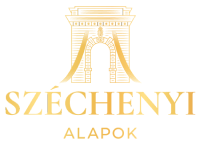 2018 was a record-making year in terms of the number and volume of investments made in Europe. Hungary managed to achieve the highest rate of growth in capital investments last year. Let us examine the year 2018 in respect of venture capital investments and the factors supporting the domestic startup environment!
2018 was a record-making year in terms of the number and volume of investments made in Europe. Hungary managed to achieve the highest rate of growth in capital investments last year. Let us examine the year 2018 in respect of venture capital investments and the factors supporting the domestic startup environment!
A year of strong growth
According to the latest report of EY named Start-up Barometer Europe showcasing European companies not older than eight years, the amount and number of financing rounds made in Europe has made a significant rise of 15% to 4,199 investments executed in 2018 compared to 3,656 financing rounds made in the preceding year. Total value of financing also increased by approximately EUR 2.1 billion, or 11% to more than EUR 21 billion in the year 2018.
The report, which also provides country-level data, shows that while the United Kingdom had the highest number (1,051) of investments among European countries with the highest deal volume (over EUR 7.2 billion) last year. Hungary managed to secure the eighth place in terms of number of financing rounds in 2018, preceding countries like Russia and Denmark. Startup investment transactions made in Hungary have risen twofold compared to the preceding year – 132 investments compared to 57, meaning an unmatched growth of 231% across the continent. Hungary was also the only country which managed to be listed as a member of the CEE region.
A June report published by Hungarian Venture Capital and Private Equity Association (HVCA), examining investments executed in 2018, also support the findings of EY. According to the figures, a total volume of EUR 346 million was invested by Hungarian venture capital funds via 191 financing rounds last year. Total invested value in domestic companies represents a 141% increase compared to EUR 144 million in 2017, while the total number of transactions increased by 84%. Around 76% of the funds came from Central and Eastern Europe, and 15% from Northern America.
Trusting the market
Among the Hungarian startups, two sectors were particularly popular among investing parties, the ICT (Information, Communication and Technology) and consumer goods and services segments, which – considering investment value – were responsible for nearly two-thirds of domestic transactions and accounted for 53% of the total number of investments in 2018. The largest deals occured in the chemicals and materials and the ICT sectors last year.
Promising companies in ICT include coding bootcamp firm Green Fox Academy, for example, which received a HUF 300 million venture capital investment led by Irinyi II. Venture Capital Fund managed by Széchenyi Venture Capital Fund Management Ltd. and the angel investment team of Baconsult led by Péter Balogh last year.
The amount of fundraising activity also experienced a huge elevation of 42.8% in 2018 to EUR 337 million, compared to the preceding year’s EUR 236 million. The CEE region was responsible for 76% of funds, while Northern America provided 15%, with France and the Benelux countries contributing 3% to sources.
The data indicates that the domestic development of the Hungarian startup ecosystem is sharply increasing in the continent. This also points to a heightened level of trust expressed by investors not only in entrepreneurs, but also the country itself: investing in Hungarian startups, consequently, is appealing for many international players.
[post_newsletter title=”Iratkozzon fel hírlevelünkre!”][/post_newsletter]
A promising climate for startups
The startup ecosystem in Hungary, especially in the case of Budapest, has been vigorous and is becoming more and more active: one can not bypass the factors which contribute to the increasing success of the startup environment. One of these factors has been previously mentioned: the domestic and foreign investors supporting the Hungarian startups, either in a direct or an indirect manner.
The country is also known for its creative and innovative solutions and is sought-after for its developers and engineers possessing deep expertise and knowledge. Likewise, the Hungarian technology sector – tech startups located in Budapest in particular – is also an attractive target for foreign investment firms.
Thanks to international funding programs like the European Investment Fund (EIF) or incubation programs like the ACCELERATOR project or the Startup Campus managed by Enterprise Hungary, domestic startups have been able to bloom since 2015, with more and more talented individuals deciding to launch a startup instead of being employed by bigger international companies.
Finally, the vision and goal of startup-focused events and conferences like Brain Bar, Startup Safari or the Venture Capital Summit, is to support and showcase existing startups, all the while encouraging would-be entrepreneurs and small company leaders to venture on their own. The ultimate goal, of course, is to make the Hungarian startup ecosystem more vibrant than ever before.
